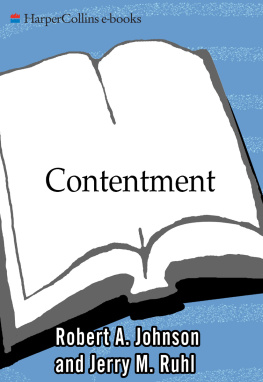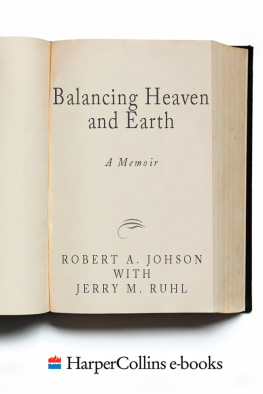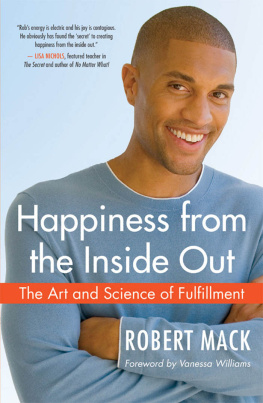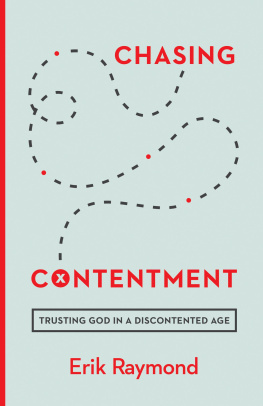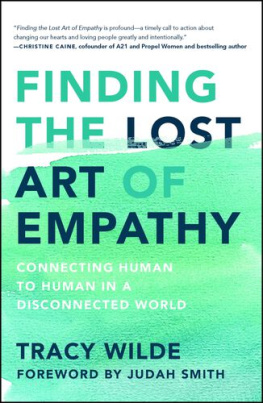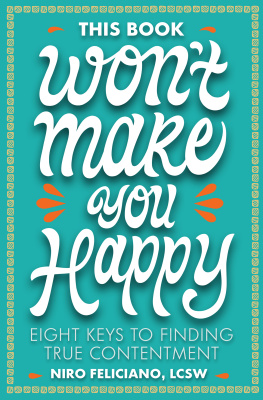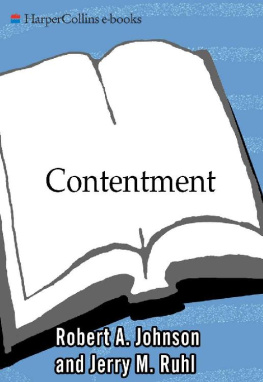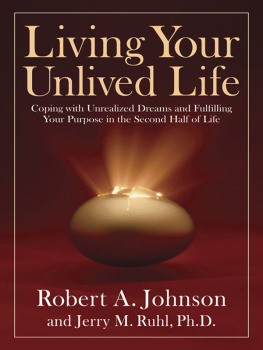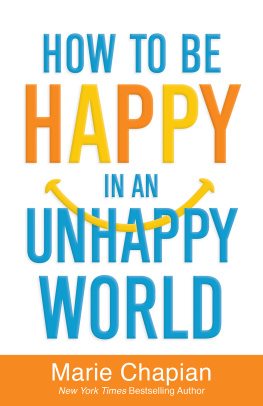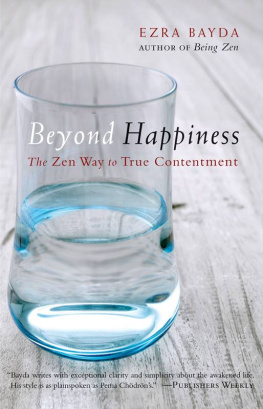Robert A. Johnson and Jerry M. Ruhl
Contents
The Tragedy of Modern Discontent
Just As Soon As
In Search of Contentment
The Fall from Eden
A Story for Our Time
King Lear
The Psychology of Contentment
Contentment Cant Be Found Out There Its Inside You
Contentment Requires Being Who You Are No More and No Less
Contentment Isnt Just Getting What You Want Its Also Wanting What You Get
When the Well of Suffering Goes Dry
Simple Gifts of Contentment
This book has been incubating for several years. It began with a lecture by my friend and colleague, Robert A. Johnson, who applied the powerful and profound story of King Lear to examine some ways that modern people sabotage their own contentment. We tend to look for something or someone on the outside to make us feel satisfied and complete, but contentment isnt found out there. It is an inner experience. The word itself, contentment , carries the implication of contentto be at home with what you already contain. Realizing this can save you a lot of misdirected energy and put you on a more fruitful path.
During the past year Robert and I worked together, drawing upon depth psychology and many spiritual traditions as well as the genius of Shakespeare, to develop a more complete understanding of contentment. You dont need to be a sage sitting on a mountaintop to be content, but these days it does require some uncommon thinking.
As modern people, we like to believe that contentment comes from getting what we want. It does not. Contentment grows out of our capacity to mediate our desires with what is. A basic spiritual principle is learning to accept what is instead of insisting that life be a certain way. Life is rarely the way we want it to be; its just the way it is. This doesnt mean that you should give up or become passive. The art of realizing contentment is an active and dynamic process. You might imagine it as a dance between your wishes and reality, what you want and what you get. This doesnt have to be a struggle. Perhaps youve seen old movies featuring the great dance team of Fred Astaire and Ginger Rogers. Fred and Ginger developed a wonderful shared rhythm, two entities so responsive to each other that there was no longer a sense that one was leading and the other following. As one stepped forward, the other stepped back. They moved as one. This is how each of us can learn to dance with what is given. Sometimes you take the lead and assert your will, and fate moves with you. In the very next step you may need to follow rather than lead. Clearly, to move with such agility and grace takes a lot of practice, but our practice studio is daily life.
We live in a transitional, complicated age, perhaps the adolescence of humankind, so contentment requires effort on our part. The goal of this book is to provide readers with both practical strategies for the mind and rich nourishment for the soul.
I would like to thank Robert for his faith in this project and the guidance he has provided throughout its development. I also owe a debt of gratitude to the faculty at Pacifica Graduate Institute, in particular Dr. Charles Asher, Dr.
Robert Romanyshyn, Dr. Dianne Skafte, and Dr. Mary Watkins, who shared many rich ideas in lectures and conversations. Finally, I wish to thank my wife, Jordis, and son, Oliver, for providing the most meaningful content in my life.
Jerry M. Ruhl, Ph.D.
September 25, 1998
Denver, Colorado
Who does not want contentment? Yet in our modern lives there is an epidemic of discontent. It is the tragedy of our times that no matter what we achieve, how much money we earn, or how many blessings come our way, more is never enough. For every desire you fill, another one always follows just on its heels. You may own a house in Aspen and make more money than God or Bill Gates, but still the feeling of fullness keeps slipping away. Thats because contentment is not the result of what you have or even what you do in life. Contentment isnt out there. Well, maybe there are small tastes of it out there, but those tastes stop satisfying after a short time and then you hunger for more. And try as you might, no amount of possessions, power, or prestige satisfies for long.
Consider a time when you were really content. Nearly everyone can think of moments when their inner yearning was filled. Maybe you were watching your child eat his first birthday cake or take her first steps. What a satisfying, fulfilling experience! Perhaps you were out fishing on a tranquil mountain lake or walking peacefully in the woods, far away from the deadlines and pressures of work and the insistent nagging of chores around the house. Contentment can also occur in workthose times when you seem to fall into rhythm with your tasks. Instead of glancing up at the clock every few minutes, you engage fully with what you are doing, and time slips by. Attainment of a goal may bring contentment for a while.
But such moments fade all too quickly. Often you dont know that you have walked across a corner of heaven until days or weeks later, when you become nostalgic for what is missing. Then you try to reproduce the conditions that led to your contentment. You bake another cake or return to the woods. But its never quite the same.
Contentment is hard to maintain. These days, how does one realize inner stillness, satisfaction, and peace of mind?
Our society teaches us that the only reality is the one we can hold onto. It values outer experiences and material possessions. Accordingly, we look for contentment out there and live with a just as soon as mentality. Just as soon as I get my work done, I can relax. Just as soon as I get married, I will be content or, conversely, Just as soon as my divorce comes through, I will be content. Just as soon as I earn enough money I can spend time with my kids. Just as soon as I get a nicer boss, a better job, a bigger house, a new car. And so our contentment slips through our fingers like quicksilveranother time, a different place, a better circumstance.
Just As Soon As should be printed on dollar bills, replacing In God We Trust as the great American slogan. What a painful way to live!
Powerful Purveyors of Discontent
Madison Avenue understands our hunger for contentment and uses it as the basis for modern advertising. Soup, automobiles, life insuranceany and all things are sold with a promise either of the satisfaction they will bring or the discomfort they will help us avoid. Advertising infiltrates nearly every corner of modern life, from television and radio commercials to newspapers, magazines, bumper stickers, billboards, park benches, T-shirts, the Interneteven our home telephones. All these messages are designed to manipulate us into craving some product or service. We are pulled by desires and pushed by fears. Madison Avenue and the mass media are powerful purveyors of discontent.
The great twentieth-century novelist James Joyce, in reflecting on the role of art in society, pointed out that propaganda is designed to create feelings of desire or loathing in the mind of an audience. Desire urges us to possess, to go to something, while loathing urges us to abandon, to go away from something. Joyce contrasted this with art, which he said should elevate the human mind, create an inner stillness, and connect us to what is grave and constant in the lot of humankind.

